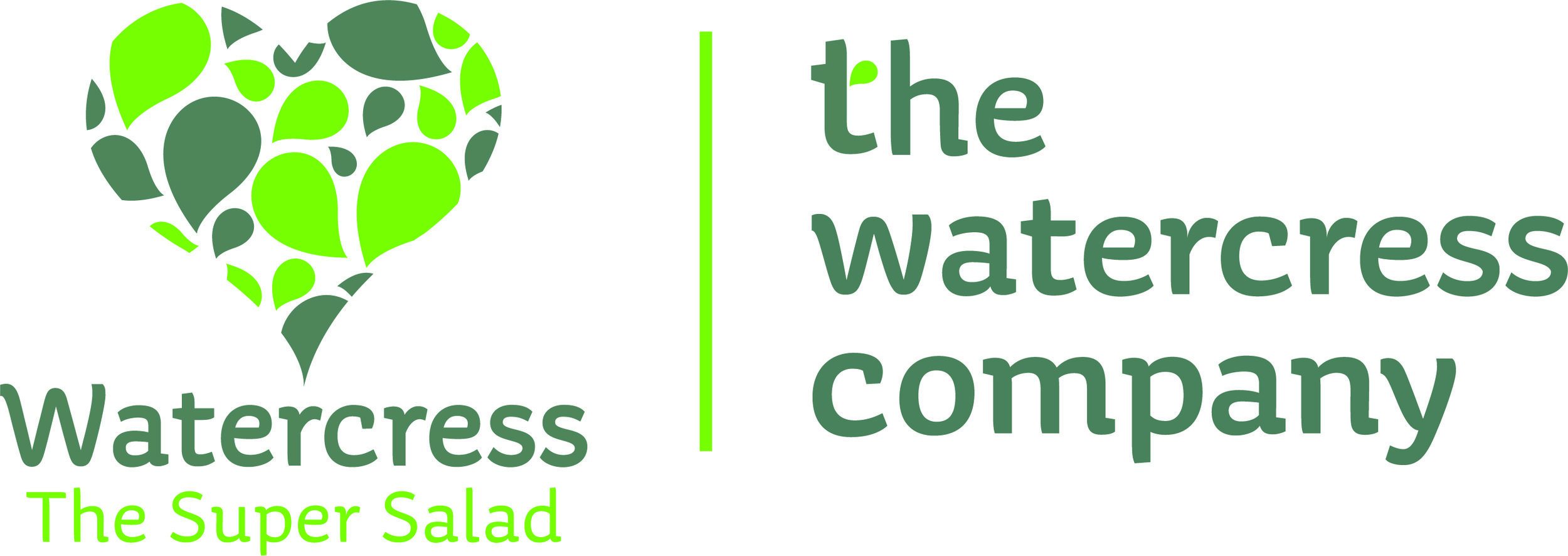Foraging, is wild watercress safe to eat?
Foraging is growing in popularity and, with the arrival of Autumn, a forager’s paradise opens up. A wide variety of mushrooms, nuts, seeds and berries are available for those who know where to look and perhaps more importantly, what to look for!
From wild garlic, multi-coloured seaweeds, aromatic herbs to rare truffles, foraging can afford those willing to look, a banquet of treats that would otherwise cost a fortune in high end-greengrocers.
Due to the availability of articles, books and even courses on the wonders of mushroom foraging most are aware about the risks of picking the wrong fungi species, but unfortunately the same cannot always be said of other plants to be found around the UK
What about watercress?
A perfect example of an edible plant sometimes foraged for food is wild watercress (Nasturtium aquaticum), a wild cousin of commercial watercress (Nasturtium officinale) which can be found across the UK in rivers, stream, ponds and ditches. So why is it not a good idea to harvest watercress from the wild?
Watercress has been grown for thousands of years for human consumption because of its incredible health benefits. For over two centuries it has been grown on purpose-built watercress farms all over the world using only the purest spring water drawn from deep underground.
Fed by potable springs. great care was taken to ensure river water could not enter the beds
A modern UK farm, Alresford , Hampshire
Recent popularity of foraging in the wild has resulted in questions being asked about the safety of wild watercress. For the last 100 years the advice has been to stay away from wild watercress as it is not clean. This holds today; put simply, if you harvest watercress from contaminated water in the wild you face some risks that you should consider first before racing down to your nearest stream or river.
A forager collects watercress from the wild
The key thing to consider is that wild watercress grows in unmanaged and unmonitored waterways. Farmed watercress is fed by pure water from underground aquifers that is constantly tested to ensure purity. You would not collect untreated water from the river to drink and, as watercress has such a close relationship with the water in which it is grown, by eating wild watercress you risk ingesting contamination which could make you ill. The kind of risks are pollution from houses discharging sewage, from wildlife or livestock from farms and also from the parasites that live in animals such as liver fluke.
Commercial watercress beds fed by artesian spring providing mineral-rich spring water, potable at source
Drilling a borehole, they knew then the importance of very clean water
If unsure just don’t risk it….
To remove those risks we only grow watercress in watercress beds on an enclosed farm that is purpose built and fed by water of drinking water quality.
1899 -watercress farmers ensured their water was tested for purity. Even then water safety was paramount for growers….can the same be said for wild watercress?
Our watercress is grown on farms that have high fences to keep out wild or farmed animals. We protect the beds by diverting water coming in from outside the farm into ditches and we only use water that is tested and has a safe record for cleanliness. All our water originates from springs or bore holes. DEFRA have written a very comprehensive guide to growing watercress safely. If you are a small hobby farmer you could use this to learn how to be safe and how to prevent risks to anyone that is eating your watercress. The most recent version was published in 2017 in conjunction with the Food Standards Agency. You can get a copy of it here or read below:
Don’t forget too that our high standards also apply to our overseas farms in Spain and the USA meaning you can buy watercress year-round in the knowledge your watercress has been grown safely and your purchase helps an independent, British company too, so thanks!
Here are 3 links that cover the story internationally and clearly demonstrate responsibly farmed watercress is best solution to your nutrient fix.
https://www.timeslive.co.za/news/south-africa/2013-09-11-watercress-kills-woman/







